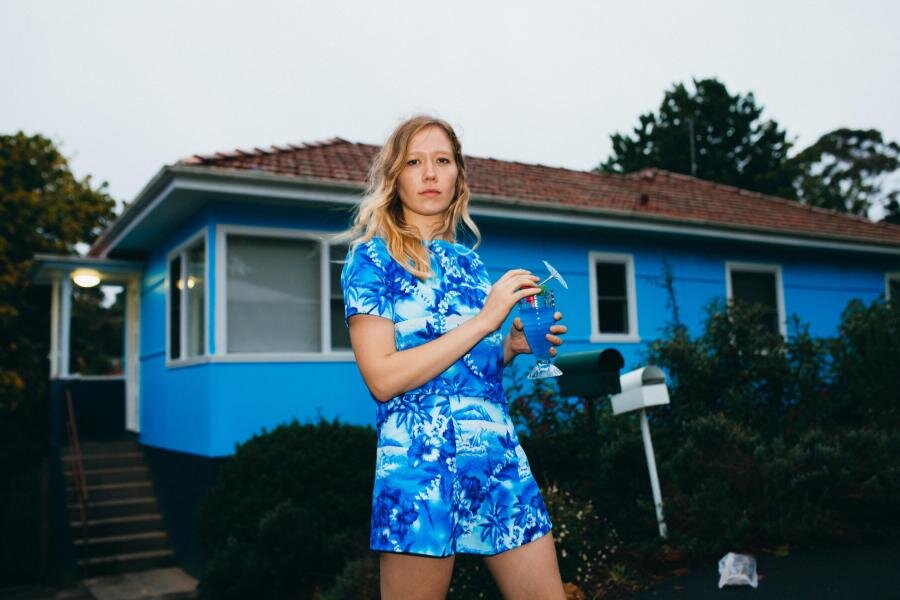Julia Jacklin Is Comfortable In New Orleans

Julia Jacklin performed a well-rehearsed set in a city that has provided many landmarks in her career.
Julia Jacklin ended where she started. Her last stop of tour was in New Orleans at Gasa Gasa on Thursday, and she revealed to the packed venue that New Orleans holds special significance for the blossoming of the Australian songwriter's musical career. She also showed how well she understands her own talents as she performed to her exact vocal and emotional range. The Gasa Gasa audience allowed her to fill the space exactly as she needed.
Julia Jacklin has a very clear sense of her limits, both in terms of song pacing and vocal range, and she approaches them without passing them. She brought her voice to the brink of sounding like it would break at any moment, then let it wobble and hang there to show how impressive her vocal control is.
She began the show with “Body,” a beautiful, five-minute song that Jacklin herself described as “a very long exaggerated sigh” in an NPR interview. It maintains a consistent pace in a limited dynamic range, and served as a fairly good indicator for the pacing of a show that had few significant rise and falls. It stayed in a musically comfortable space that she has developed for herself.
Jacklin's work is sad and beautiful, but it sits within a realm of comfort as well. Her lyrics give listeners a familiar, manageable sadness, not one that feels hard and all-encompassing. Her song structure is simple, and her voice carries the lyrics with no grandiose showmanship. She makes music for after the hard coping is done--music for when you’re sitting in your bedroom reminiscing, flipping through old pictures, already on the other side of heartbreak. Her lyrics do not sting; they ache, and there is something very matter-of-fact in the sadness they provide.
Since New Orleans was her last stop on this leg of tour, her show was clearly very rehearsed. She and her band knew the ups and downs of the show, and there was little spontaneity. It was a well-rehearsed machine that made sense for Jacklin’s brand. Everything about her music and her set was worked out, and she was okay sitting in that comfort zone.
She performed “Pool Party,” near the end, which is her best known song, and a perfect encapsulation of her style. It has a dreamy, love-song quality to it, but is juxtaposed with gutting lyrics that describe an asymetrical relationship. A man twirled his girlfriend in the crowd as though it were a romantic moment, while she sang the chorus, “Oh, I wanna give you all of my love / But I watched you sink as they swam above / You are the land and I am the dove / My heart is heavy when you're high / So, for me, why won't you try?”
Julia Jacklin is not a huge star, but her following has grown pretty substantially with the release of her sophomore album, Crushing. Gasa Gasa was the perfect sized venue for her, and it’s set up to let artists of her size feel the weight and scope of their fan base. Jacklin noted that she wasn’t expecting a large crowd for this show, and was pleasantly surprised and slightly overwhelmed with how full the show was.
In the middle of the show, Jacklin told about her history with New Orleans. She revealed that she played an open mic at Checkpoint Charlie’s when she was 22 before she considered herself a real musician, and played her first U.S. show here to two or three people at a “strange cafe” that was probably someone’s house. At that show she had no mic, no amp, and played her electric guitar unplugged. After the show, though, she still felt a sense of pride. She ended the story saying, “Look at me now!”






